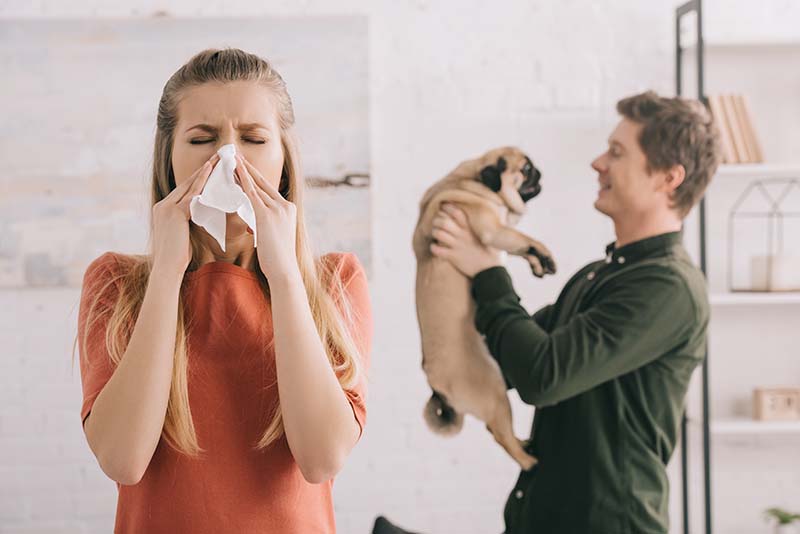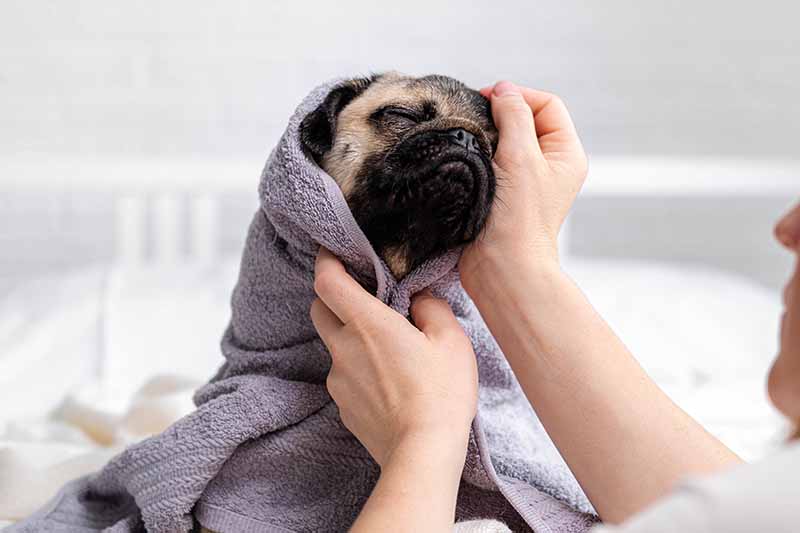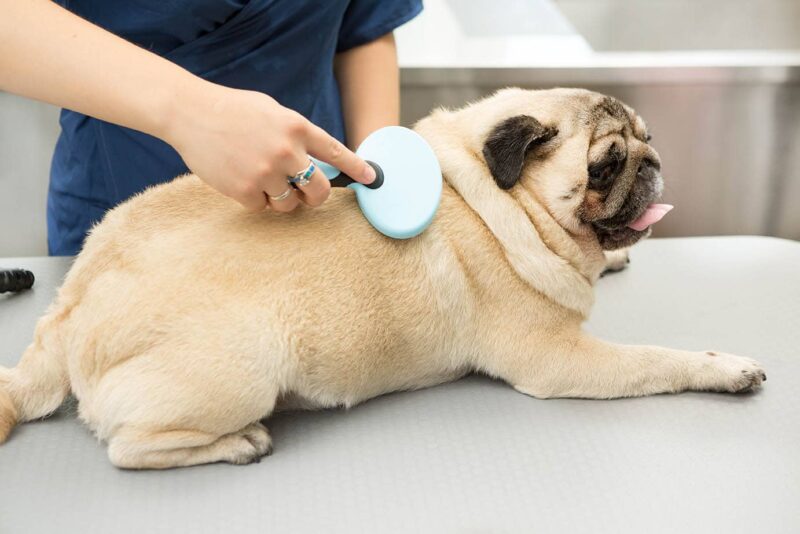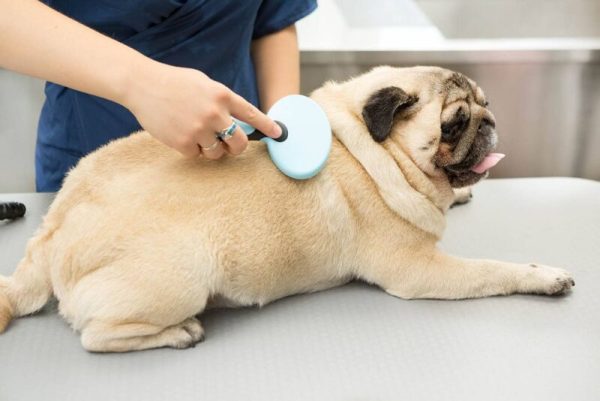With their adorably curled tails and constantly “smiling” faces, Pugs are one of the world’s most well-known and easily recognized dog breeds. Many dog owners have fallen for the flat-faced charm of the Pug, but those with allergies may pay the price. A Pug is not a hypoallergenic or allergy-friendly breed.
Keep reading to learn why Pugs are likely to cause an allergy response and why there’s no such thing as a truly hypoallergenic dog breed. We’ll also list a few breeds that may be more well-tolerated by people with pet allergies. Finally, if you have your heart set on a Pug, we’ll give you some tips that may help you reduce your allergy symptoms and enjoy life with your pet.
Why Pugs Aren’t Hypoallergenic
If you’re allergic to dogs, your immune system responds negatively in the presence of certain proteins produced by the animal. These proteins are mainly found in the dog’s saliva and dander (dead skin cells.) All dogs, even those who rarely shed or don’t have hair, still produce dander and saliva.
Because of that, there is no completely hypoallergenic breed. However, dander and saliva commonly stick to a dog’s hair, so breeds that shed heavily are more likely to spread allergens around their environment. Pugs have short hair, but they also shed quite a bit, which is why they are not hypoallergenic dogs.

What Makes a Breed More Allergy-Friendly?
Animal researchers and medical professionals all agree that no breed is truly hypoallergenic. However, it’s also true that some breeds and individual dogs are less likely to trigger an allergic response.
Not every dog produces the same amount of dander and saliva, nor do they all make the same proteins. If you have allergies, you may react to one Pug but barely sneeze in the presence of a different one.
In addition, breeds that don’t shed much keep their allergy-triggering proteins more contained. People with allergies often tolerate these breeds better, but they’re still capable of causing symptoms. Some breeds that are considered more allergy-friendly include:
- Poodle
- Maltese
- Yorkshire Terrier
- Bichon Frise
- Afghan Hound
- Portuguese Water Dog
- Shih Tzu
Again, even with these dogs, they can vary in how they impact people with allergies. The only way to know for sure how you’ll react to a specific dog if you have allergies is to spend time with them.

Tips for Living with a Pug If You Have Allergies
If you have allergies but also love Pugs, here are some steps you can take to reduce the allergic impact of having a dog.
- Frequent bathing can decrease the number of potential allergens on your Pug. Check with your vet before you increase your dog’s baths to ensure you won’t dry out the Pug’s skin and coat. Regular brushing can also keep shedding under control, but you may want to leave this task to someone without allergies.
- Keep your house as clean and dog hair-free as possible. Vacuum and mop regularly and avoid dry cleaning techniques like sweeping or dusting because they stir up allergens. Use static cleaning products instead.
- Change your home air filters frequently, and consider using a portable air cleaner around your house. Try to keep at least one area of your home off-limits to your Pug, such as your bedroom. Having a relatively allergen-free space can make it easier for you to live with a Pug.
- Finally, talk to your doctor or allergist about other strategies for reducing allergens. They may also suggest medications or allergy shots to reduce symptoms triggered by your pet.

Summing Up
Pugs aren’t hypoallergenic dogs, and their frequent shedding also keeps them off the list of more allergy-friendly breeds. However, you cannot predict how your immune system will react to any dog until you first encounter them. If you have your heart set on adding a Pug to your family, spend some time with your potential new pet first to see how your immune system responds. As you learned in this article, people with allergies have options to make living with a pet easier.
Featured Image Credit: Zoriana Zaitseva, Shutterstock








